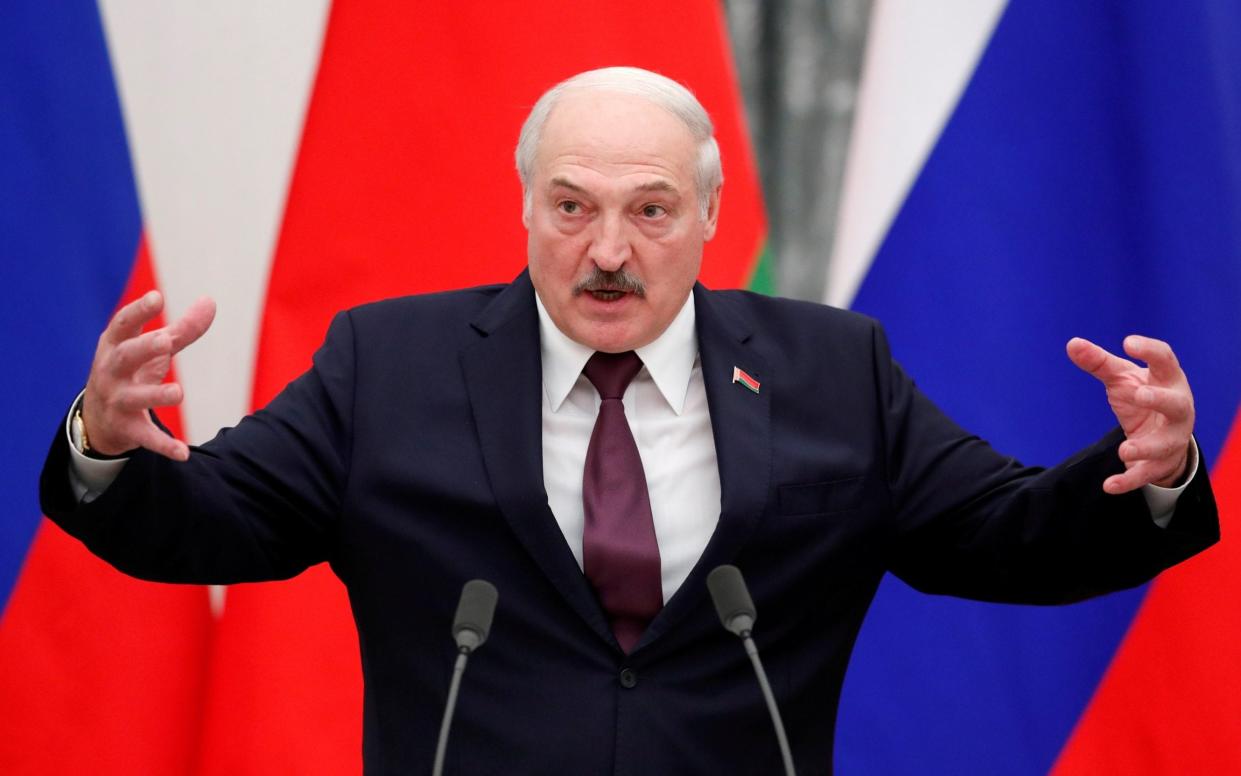Russia calls Alexander Lukashenko's threat to host its nuclear weapons 'a warning' to the West

- Oops!Something went wrong.Please try again later.
- Oops!Something went wrong.Please try again later.
- Oops!Something went wrong.Please try again later.
Russia’s foreign policy chief on Wednesday described a surprise offer by the Belarusian dictator to host nuclear weapons as a “warning” to the West triggered by Nato’s hostile moves.
In an interview on Tuesday, Alexander Lukashenko voiced concern about Nato’s increased activities near his country’s borders as the EU is scrambling to react to Europe’s latest migrant crisis that many in the West say was orchestrated by the Belarusian regime.
“I will suggest that Putin bring back nuclear weapons to Belarus,” Mr Lukashenko said, commenting on reports that Nato could be moving its nuclear arsenal from Germany to eastern Europe.
“We’ll figure out what kind of weapons.”
Russia came to inherit all of the Soviet Union’s vast nuclear arsenal following the collapse of the Communist empire in 1991 although nuclear weapons were deployed in several Soviet republics.
Russia borders on several Nato and EU member states and does not need Belarus’ invitation to move nukes to the EU border. In 2016, Russia deployed nuclear-capable Iskander missiles to Kaliningrad, the Russian exclave wedged between Poland and Lithuania.
Mr Lukashenko, who has relied almost entirely on Russia’s support since he crushed a nationwide uprising against his dubious re-election last summer, is known for making provocative statements that often have little bearing on reality.
Yet, Moscow on Wednesday did not dismiss his threat altogether.
Sergei Lavrov, Russia’s foreign minister, told parliament Mr Lukashenko’s statement “should be treated as a very serious warning that is mostly caused by reckless policies of the West.”
Jens Stoltenberg, Nato’s secretary general, last month raised the possibility of moving the military alliance’s nukes closer to Russia in case Germany decides it no longer wants to host US nuclear bombs on its soil.
Nato would have to look for an alternative if Germany’s new government withdraws from Nato’s nuclear sharing arrangement including “to the east of Germany,” Mr Stoltenberg said.
Minister Lavrov on Wednesday described the plan as “irresponsible” and “aiming not only to exacerbate the confrontation but also provoke an open conflict.”
“I have no idea what they’re hoping to achieve with that,” he said. “This is an outrageous stance.”

